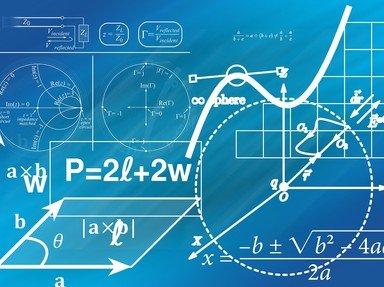Quiz Answer Key and Fun Facts
1. Take a number, for example, 7846.
Which of the following must be true about any number whose last digit is 6?
2. Take a number, for example 46338. The digits add up to 24. What can be said about any number whose digits add to 24?
3. Take the number 45681. The digits add to 24. As it stands the number is NOT divisible by nine -- but what is the smallest amount you need to add to that number to make it divisible by 9?
4. Another number is 468930. The even digits sum to 15, the odd digits to 15: 4+8+3 and 6+9+0 both equal 15.
Accordingly we can say with complete confidence that...?
5. Let us take the number 15625. Which of these statements is NOT true?
6. Another example number is 48768. Which of these statements is true about any number ending in 8?
7. If you add up three consecutive numbers the total will always be...?
So for example take 423 + 424 + 425; what generalization can be made?
8. We know 5 squared is 25. What rule can we apply to work out what the next higher square will be.
in other words to get from 5 squared to 6 squared will be, we take 25 and....?
Equally, to get from 11 squared equaling 121 to 12 squared, we simply....
9. The fun fact about a right angle triangle is that the sum of the squares of the lengths of the two shorter sides = the sum of the square of the longer sides.
A right angle triangle with sides 3, 4, and 5 produces an example. 3 squared is 9, 4 squared is 16, and the sum of 25 equals 5 squared.
With a right angle triangle whose shortest side is 7, can you find the other two sides with whole numbers? Remember that 7 squared is 49.
10. Lets take a number with one unreadable digit:
7463#16
What should that missing digit be to give us a number divisible by 1, 2, 3, 4, 6, 8, 9 and 12?
Source: Author
garrybl
This quiz was reviewed by FunTrivia editor
WesleyCrusher before going online.
Any errors found in FunTrivia content are routinely corrected through our feedback system.
